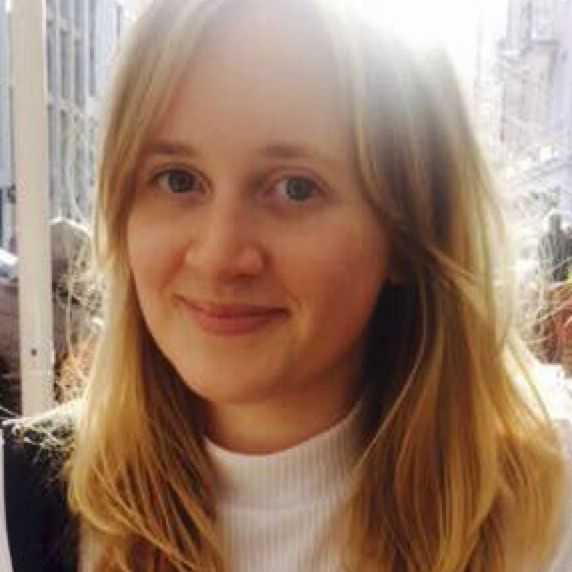Starting-up a Vertically Integrated Project at the University of St Andrews
22 February 2021
Vertically Integrated Projects for Sustainable Development at the University of Strathclyde

Authors
Dr Louise Logan
Learning Enhancement Officer and Programme Coordinator for VIP4SD, University of Strathclyde
Dr Scott Strachan
Senior Teaching Fellow in Electronic and Electrical Engineering and Co-Director of VIP4SD, University of Strathclyde
The second of two connected blogs looking at the introduction and impact of Vertically Integrated Project (VIP) initiatives in Scotland, Dr Louise Logan and Dr Scott Strachan explain how the University of Strathclyde's VIPs for Sustainable Development programme educates, equips and inspires students to meet complex global challenges.
In 2015, the United Nations launched Agenda 2030, setting out a framework for addressing a range of complex and pressing global problems. The 17 Sustainable Development Goals (SDGs), also known as the Global Goals, represent the social, economic, environmental and cultural issues that the international community must address to ensure a sustainable and fair future for all. These include eradicating poverty and hunger, protecting our environment, ensuring institutions are fair and just, and providing quality education for all.
With less than 10 years to achieve these aims, UN Secretary General António Guterres has emphasised that now is the time to move away from only discussing the SDGs and to make progress in this ‘decade of action’. Globally, we are also facing a decade of recovery from the COVID-19 pandemic, and we need creative and transformative solutions to address the inequalities the pandemic has magnified.
Given these urgent global challenges, it’s clear that we need new approaches to higher education in order to equip students with the skills and competencies necessary to meet them. There are a number of programmes at the University of Strathclyde attempting to do just that, one of which is Vertically Integrated Projects for Sustainable Development (VIP4SD).
As Ian Smith’s article about St Andrews’ Vertically Integrated Projects (VIP) programme outlined, VIP is a model that enables students from multiple levels of study to work together on long term, enquiry-based research projects. Strathclyde launched its VIP programme in 2012 as one of the original 6 sites of the International VIP Consortium. As well as adopting the model’s vertical integration (incorporating students of multiple levels), Strathclyde’s programme includes ‘horizontal integration’ in that it involves interdisciplinary research teams. In 2016, the programme then became aligned with sustainable development in response to Agenda 2030. Now, all VIP4SD projects address at least one of the SDGs through their research, and Georgia Tech, where VIP originated, has also recently embraced the SDGs in their flagship programme.
By combining the Research-based Education (RBE) model of VIP with Education for Sustainable Development (ESD) to create Research-based Education for Sustainable Development (RBESD), VIP4SD seeks to imbue students with the competencies associated with both approaches. These include systems thinking, critical thinking, self-awareness, and integrated problem solving, which students gain through collaborative research-based work. By developing these competencies, students gain the skills necessary for the workplace as well as an understanding of how to progress in their respective fields without negatively impacting the world around them.
VIP4SD projects are wide-ranging and involve collaborations between students and staff from all four Strathclyde faculties (Humanities and Social Sciences, Engineering, Science, and the Business School). The Drug Discovery project involves students from engineering working with biomedical science students to develop ways of identifying new antibiotics (SDG3); Education students have enhanced the development of STEM reasoning skills in schools located in areas of deprivation in Glasgow through the STEM Education and Public Engagement project (SDG4); and further afield, engineering and business students have developed and implemented new energy solutions designed to aid the close to one billion of the world’s people currently living without clean and affordable electricity (SDG7). Staff and students have travelled to remote rural schools and health clinics in The Gambia, where they have completed (on average) one off-grid solar PV installation per year since 2006. This has led to approximately 3,000 school children being able to study at night with classroom lighting, and has further powered ventilation fans, laptops and TVs. The VIP4SD programme therefore allows students to gain competencies in ESD while making real societal impact through their work.
The programme has gained national and international recognition in the last couple of years, firstly with a UK and Ireland Green Gown Award for Student Engagement, followed by an International Green Gown Award in the same category. We are working with staff across the University to mainstream the programme and make it available to all and have made significant gains in this area in the last year. We now have 20 projects and student pathways to participation in 11 departments. While challenges remain, for example, creating space within curricula in the context of accreditation requirements, progress have been encouraging.
There is still some way to go in the development of the programme, but we have been pleased to see the positive impact participation has had on both students and the communities they work with. The VIP4SD programme educates, equips and inspires students to become the constructive citizens we are all relying on to meet these complex global challenges, and the combined impact on all of our students is one we hope they will sustain and pay forward to the benefit of all.

